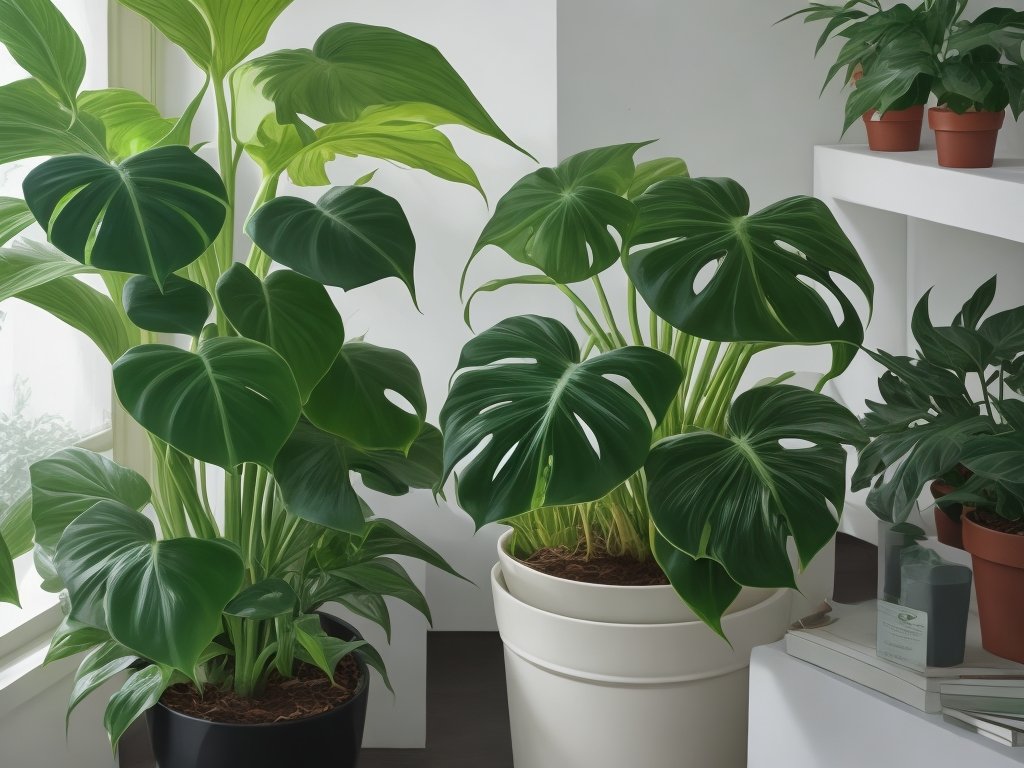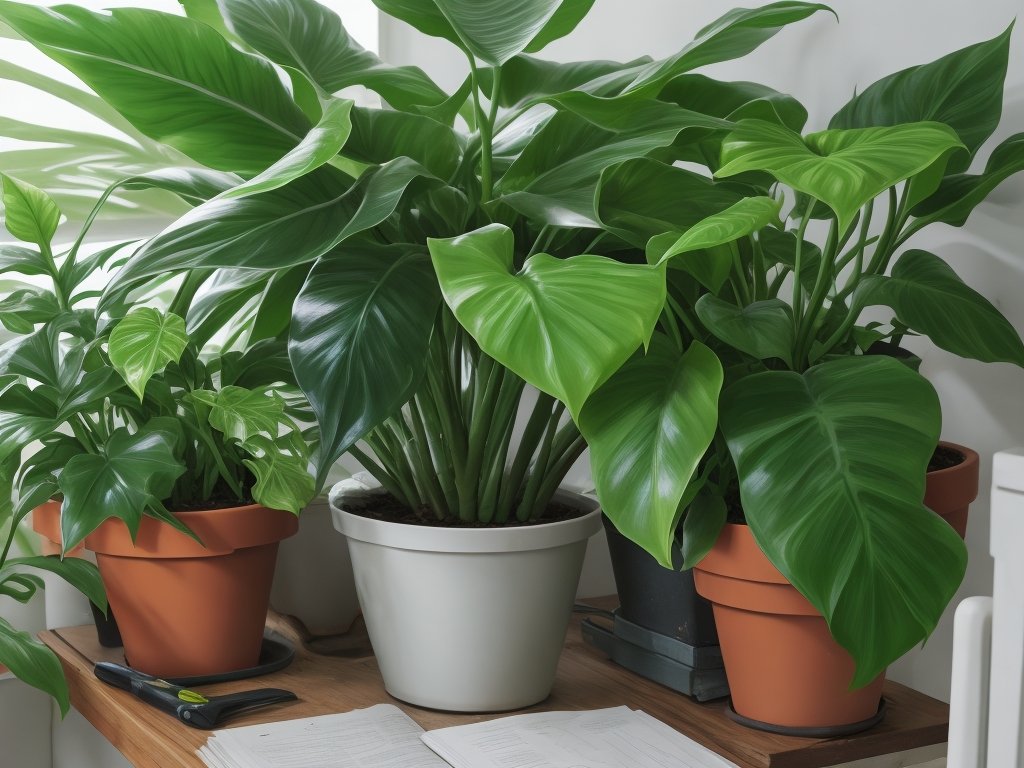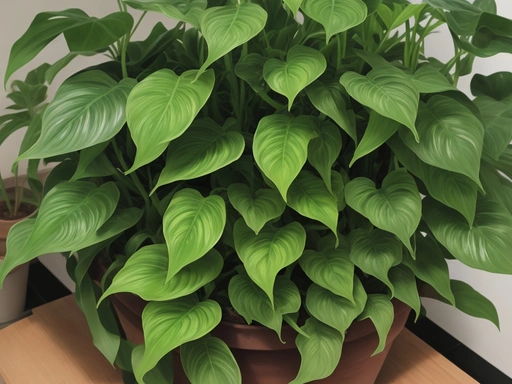Philodendron Natural Fertilizers: Boost Your Plant’s Growth!
Key Takeaways:
- Natural fertilizers for Philodendron plants can promote healthy growth without the use of harsh chemicals.
- Common household items like coffee grounds, banana peels, and eggshells can be used as effective natural fertilizers for Philodendrons.
- Natural fertilizers provide essential nutrients such as nitrogen, potassium, and phosphorus, which are necessary for the overall health and vitality of Philodendron plants.
- Using natural fertilizers can help reduce environmental impact and create a more sustainable approach to caring for your Philodendron plants.
Are you a proud plant parent of a Philodendron looking to boost its growth and overall health? Well, you’re in luck! In this article, we’ll explore the wonderful world of Philodendron natural fertilizers and discover how they can benefit your plants.
From improved growth to being environmentally friendly, natural fertilizers offer a host of advantages over their chemical counterparts.
We’ll also dive into different types of natural fertilizers, such as compost, manure, and organic liquid fertilizers, and how to use them effectively. Plus, we’ll share some helpful tips and common mistakes to avoid.
So, grab your gardening gloves and let’s get started on a journey to flourishing Philodendrons!
| Fertilizer | Nutrients | Advantages | Disadvantages |
| Compost | Nitrogen, phosphorus, potassium, micronutrients | Improves soil structure, promotes microbial activity, slow-release of nutrients | May attract pests if not properly managed, requires time to decompose |
| Manure | Nitrogen, phosphorus, potassium, organic matter | Rich in nutrients, improves soil fertility, enhances water-holding capacity | Strong odor, may contain harmful pathogens if not composted properly |
| Fish emulsion | Nitrogen, phosphorus, potassium | Fast-acting, readily available nutrients, stimulates plant growth | Strong smell, may attract pests, needs frequent application |
| Bone meal | Phosphorus, calcium | Promotes root development, enhances flowering and fruiting | Slow-release, may increase soil pH, not suitable for plants that prefer acidic conditions |
| Seaweed extract | Trace elements, growth hormones | Stimulates plant growth, improves soil structure, enhances resistance to pests and diseases | Expensive, needs regular application, may have a strong odor |
Benefits of using natural fertilizers for Philodendrons
Using natural fertilizers for Philodendrons has several benefits including improved plant growth and health, an environmentally friendly option, and reduced risk of chemical buildup.
Improved plant growth and health
Improved plant growth and health are key benefits of using natural fertilizers for Philodendrons. Natural fertilizers provide essential nutrients that promote healthy root development, lush foliage, and robust growth.
They help improve the overall vigor and resilience of the plants, making them less susceptible to diseases and pests.
Additionally, natural fertilizers support the natural ecosystem of the soil, fostering a balanced and thriving environment for the Philodendrons.

Environmentally friendly option
An environmentally friendly option for fertilizing Philodendrons is to use natural fertilizers.
These fertilizers are made from organic materials, such as compost and manure, and do not contain harmful chemicals.
They promote healthy plant growth without negatively impacting the environment.
Additionally, organic liquid fertilizers are another eco-friendly choice.
Reduced risk of chemical buildup
Using natural fertilizers for Philodendrons can help reduce the risk of chemical buildup in the soil.
Chemical fertilizers can accumulate over time and potentially harm your plants.
Natural options like compost, manure, and organic liquid fertilizers provide nutrients without the risk of harmful chemical buildup.
Types of natural fertilizers for Philodendrons
Philodendrons can benefit from natural fertilizers like compost, manure, and organic liquid fertilizers.
Compost
Compost is a type of natural fertilizer that is made from decomposed organic matter such as food scraps, leaves, and grass clippings.
It is rich in nutrients and beneficial microorganisms that help improve soil structure and fertility.
To create compost, you can collect organic materials in a compost bin, turn it regularly to promote decomposition, and after several months, you’ll have nutrient-rich compost to use for your Philodendrons!
Manure
Manure is a type of natural fertilizer that is made from decomposed animal waste.
It is rich in nutrients like nitrogen, phosphorus, and potassium, which are essential for the healthy growth of Philodendron plants.
Applying manure to the soil helps improve soil structure, increases water retention, and promotes the overall health of your Philodendron.
However, it’s important to use composted or well-aged manure to avoid burning the plant’s roots.

Organic liquid fertilizers
Organic liquid fertilizers are a type of natural fertilizer that comes in liquid form. They are made from organic materials such as seaweed, fish emulsion, or compost tea.
These fertilizers are rich in nutrients and are easily absorbed by the plants.
They can be applied directly to the soil or sprayed onto the leaves. Organic liquid fertilizers provide essential nutrients to philodendron plants, promoting their growth and overall health.
How to use natural fertilizers for Philodendrons
To use natural fertilizers for Philodendrons, you can create compost, apply manure, or use organic liquid fertilizers.
Creating compost for Philodendrons
Creating compost for Philodendrons is a great way to provide them with natural and nutrient-rich fertilizer.
You can make compost by combining organic matter like kitchen scraps, leaves, and yard waste.
Allow the mixture to decompose over time, turning it occasionally.
Once it has turned into dark, crumbly compost, you can mix it into the soil around your Philodendrons to promote their growth and health.

Applying manure to Philodendrons
Applying manure to Philodendrons is a great way to provide them with organic nutrients. To do this, first, choose well-rotted manure to avoid burning the plants.
Then, spread a thin layer of manure around the base of the plant, avoiding direct contact with stems or leaves.
Finally, water the plants well to help the nutrients from the manure soak into the soil.

Using organic liquid fertilizers for Philodendrons
Using organic liquid fertilizers for Philodendrons can provide several benefits. It helps improve plant growth and overall health.
It is an environmentally friendly option that reduces the risk of chemical buildup.
However, it’s important to follow dosage recommendations and avoid over-fertilization. Diluting the organic liquid fertilizer properly is crucial to prevent burning the plants.
Tips for successful fertilization of Philodendrons
Frequency of fertilization: Regularly fertilize your Philodendrons during the growing season, typically once a month, to ensure healthy growth and vibrant foliage. Dosage recommendations: Follow the instructions on the fertilizer packaging and dilute it to half-strength to prevent burning the roots of your Philodendrons.
Additional care during fertilization: Water your Philodendrons thoroughly before applying fertilizer, and avoid overfertilizing as it can lead to nutrient buildup and harm your plants.
Frequency of fertilization
Fertilize your Philodendrons every 4-6 weeks during the growing season, which is typically spring and summer. This regular fertilization provides the necessary nutrients for healthy growth.
However, during the dormant period in winter, reduce fertilization to once every 2-3 months to support the plant’s reduced activity.
Dosage recommendations
Dosage recommendations for natural fertilizers for Philodendrons vary depending on the specific type of fertilizer being used. It is important to carefully read and follow the instructions on the product packaging.
Generally, it is recommended to apply a small amount of fertilizer, such as diluted compost or manure, around the base of the plant once every 4-6 weeks during the growing season.
For organic liquid fertilizers, follow the dilution instructions provided by the manufacturer and apply as directed. It is crucial to avoid over-fertilization, as this can harm the plant.
Common mistakes to avoid when using natural fertilizers for Philodendrons
When using natural fertilizers for Philodendrons, avoid over-fertilization, using uncomposted manure, and improper dilution of organic liquid fertilizers.
Over-fertilization
Over-fertilization is when you provide too much fertilizer to your Philodendron plants. This can lead to harm rather than benefits.
It can cause root burn, nutrient imbalances, and even plant death.
It’s important to follow the recommended dosage and frequency guidelines to avoid over-fertilization.
Using uncomposted manure
Using uncomposted manure for Philodendrons is not recommended. Uncomposted manure can contain harmful pathogens and may burn the plant roots.
It’s best to use composted manure or other natural fertilizers that have undergone the composting process to ensure their safety and effectiveness.
Improper dilution of organic liquid fertilizers
Improper dilution of organic liquid fertilizers can harm your Philodendron plants. It’s essential to follow the instructions on the product label for dilution ratios.
Overdiluting can result in insufficient nutrients, while underdiluting can burn the roots.
Always measure and mix the fertilizers properly to ensure your plants receive the right amount of nutrients.
Frequently Asked Questions about Philodendron natural fertilizers
Can I use chemical fertilizers for Philodendrons?
No, it is not recommended to use chemical fertilizers for Philodendrons. These plants prefer natural fertilizers, as chemical ones can cause a buildup of harmful salts in the soil.
Opt for organic options like compost, manure, or organic liquid fertilizers for better plant health and environmental sustainability.
What is the best natural fertilizer for Philodendrons?
The best natural fertilizer for Philodendrons is compost. It provides essential nutrients and improves soil structure.
Manure is also effective, but make sure it’s well-composted to avoid burning the plant.
Organic liquid fertilizers, like fish emulsion or seaweed extract, are another good option.
How often should I fertilize my Philodendron plants?
Fertilize your Philodendron plants every 4 to 6 weeks during the growing season, which is usually spring and summer.
Be sure to follow the fertilizer package instructions for dosage recommendations.
Avoid over-fertilizing as this can harm the plant.
Final Verdict
Using natural fertilizers for Philodendrons offers several benefits.
It promotes improved plant growth and health, provides an environmentally friendly option, and reduces the risk of chemical buildup.
Compost, manure, and organic liquid fertilizers are effective choices for nourishing Philodendrons.
By creating compost, applying manure, or using organic liquid fertilizers properly, you can ensure successful fertilization.
Remember to fertilize Philodendrons with the appropriate frequency and dosage, while also taking additional care during the process.
Avoid common mistakes like over-fertilization, using uncomposted manure, or improper dilution of organic liquid fertilizers.
And finally, chemical fertilizers are not recommended for Philodendrons.
Choose natural options for optimal growth and health of your Philodendron plants.







